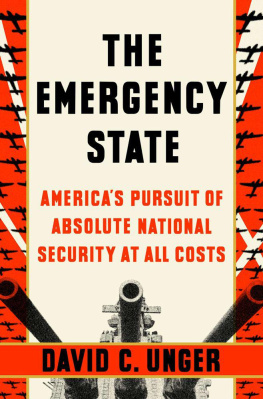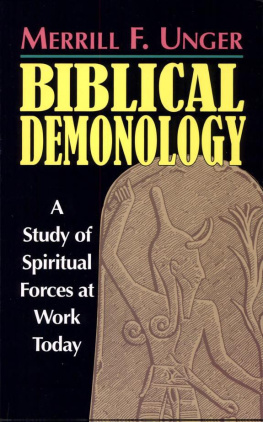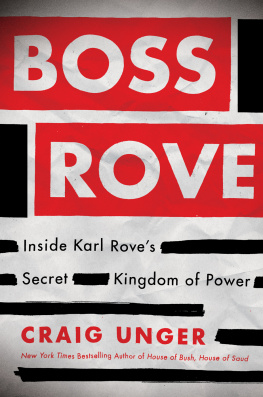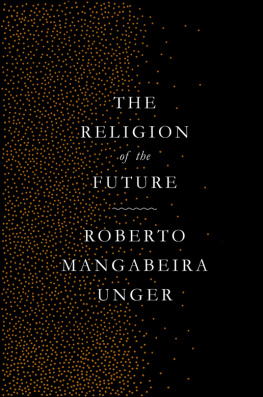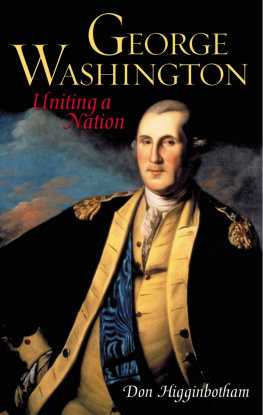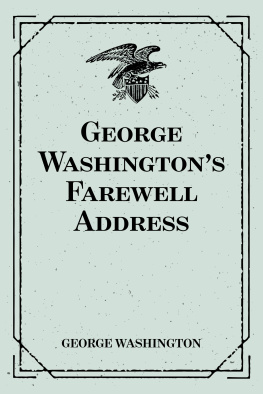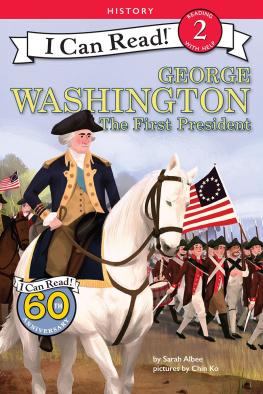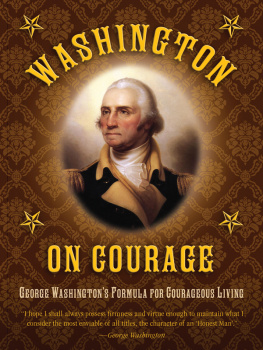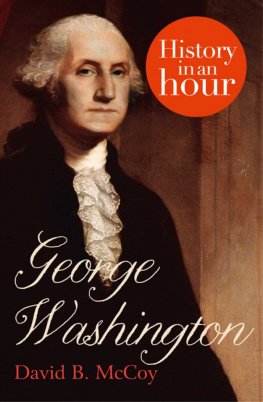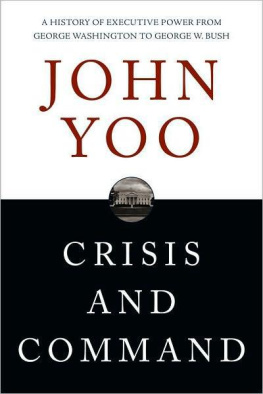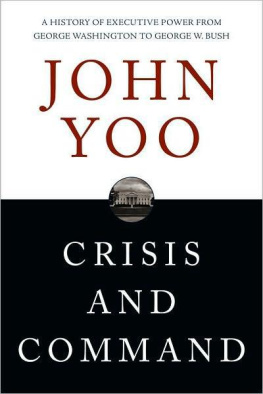
Mr. President
GEORGE WASHINGTON AND THE
MAKING OF THE NATIONS HIGHEST OFFICE
HARLOW GILES UNGER

DA CAPO PRESS
A Member of the Perseus Books Group
Mr. President
Copyright 2013 by Harlow Giles Unger
All rights reserved. No part of this publication may be reproduced, stored in a retrieval system, or transmitted, in any form or by any means, electronic, mechanical, photocopying, recording, or otherwise, without the prior written permission of the publisher. For information, address Da Capo Press, 44 Farnsworth St., 3rd floor, Boston, MA 02210.
Designed by Trish Wilkinson
Set in 11.5 point Adobe Garamond Pro by The Perseus Books Group
Library of Congress Cataloging-in-Publication Data
Unger, Harlow G., 1931
Mr. President: George Washington and the making of the nations highest office / Harlow Giles Unger.
pages cm
Includes bibliographical references and index.
ISBN 978-0-306-82241-4 (e-book) 1. United StatesPolitics and government17891797.
2. Washington, George, 17321799. 3. Executive powerUnited StatesHistory. I. Title.
E311.U54 2013
973.4'1092dc23
First Da Capo Press edition 2013
Published by Da Capo Press
A Member of the Perseus Books Group
www.dacapopress.com
Da Capo Press books are available at special discounts for bulk purchases in the U.S. by corporations, institutions, and other organizations. For more information, please contact the Special Markets Department at the Perseus Books Group, 2300 Chestnut Street, Suite 200, Philadelphia, PA 19103, or call (800) 810-4145, ext. 5000, or e-mail .
10 9 8 7 6 5 4 3 2 1
To
Gay Hart Gaines
and
James C. Rees
Contents
My deepest thanks to my friend and mentor John P. Kaminski, one of Americas outstanding constitutional scholars, who was kind enough to review the manuscript of this book. Historian, author, educator, lecturer, documentary editor, and patriot, Dr. Kaminski was founder and director of the Center for the Study of the American Constitution at the University of Wisconsin (Madison), and the longtime editor-in-chief of one of the nations most important historical treasures: The Documentary History of the Ratification of the Constitution.
I am most grateful, as well, to Da Capo Press publisher John Radziewicz; to my editor Robert Pigeon, the executive editor at Da Capo; and to Lissa Warren, Vice President and Director of Publicity (and an author herself). Many others at Da Capo Press and the Perseus Books Group have made enormous contributions to the production and distribution of this book, among them Kevin Hanover, Director of Marketing and the extraordinary Perseus Books Group sales force; marketing executive Sean Maher; Cisca L. Schreefel, Manager of Editorial Production; and copyeditor Martha Whitt. To all of you, I thank you not only for your professional help but for your warm friendship and patience.
One last expression of gratitude and acknowledgment for his contribution to this and all my other books goes to the late Edward W. Knappman, my literary agent since I started writing books on American history. A brilliant scholar, publisher, and editor before he began representing authors, Ed founded New England Publishing Associates with his wife Elizabeth Knappman, and the two were instrumental in introducing dozens of authors to the public. I owe my career as an author to Ed and shall always miss him.

Most Americans were still celebrating their Revolutionary War victory when fresh sparks of rebellion flared in Philadelphia. By 1786, they had burst into flames and spread northward to New York and Massachusetts, then southward into Pennsylvania, Maryland, Virginia, the Carolinas, and Georgia. By 1791, they lapped onto the Blue Ridge, across the Shenandoah, and over the Appalachians, where they engulfed the entire frontier, as angry mobs swelled into an army ready to fight for independence... and not from Britainbut from the United States!
Goaded by the press, foreign agents, and ambitious home-grown demagogues, tens of thousands of American farmers vilified President George Washington, his government, Congress, the courts, and the armymuch as they had vilified King George III, the British Parliament, and the Redcoats two decades earlier in 1776.
If ever a nation was debauched by a man, growled a correspondent in Philadelphias Aurora, the American nation has been debauched by WASHINGTON! Let the history of the federal government instruct mankind that the masque of patriotism may be worn to conceal the foulest designs against the liberties of a people. Another writer urged
Only two decades earlier, Washington and members of Congress had led Americans in rebellion against British taxation, calling it the horror of all free states, wresting your property from you... and laying open to insolent tax-gatherers, [your] houses, the scenes of domestic peace and comfort.
Now, Congress was sending its own insolent tax-gatherers across the nation to wrest properties from those who wouldnt or couldnt pay taxes. Even more appalling: George Washington, the father of our country, was ready to lead an army to enforce American tax laws, assailing his fellow citizens for creating discordjust as the British government had assailed him for creating discord after Parliament had passed the Stamp Act in 1765.
The Constitution and laws must strictly govern, Washington thundered as he prepared to call up troops to crush farmer opposition to taxes in western Pennsylvania. It was every American patriots worst nightmare come trueGeorge Washington turned tyranta George IV.
Only four years earlier, in 1788, Virginia governor Edmund Randolph, who had been Washingtons aide-de-camp at the beginning of the Revolutionary War, warned that the new American Constitution was a fetus of monarchy.
But President Washington remained firm in his determination to preserve the government and the Union, insisting that the daring and factious spirit which has arisen to overturn the laws and to subvert the
Then, in one of the defining events in the creation of the U.S. presidency, Washington startled his countrymen by ignoring constitutional limits on presidential powers and ordering troops to crush tax protests by American citizensmuch as the British government had tried, and failed, to do in the years leading up to the American Revolution.
It was not the first timenor would it be the lastthat Washington would assumeor as critics charged, usurppowers not granted by the Constitution. Indeed, from the moment he took office in the spring of 1789, Washington had been obsessed with establishing the President as a supreme power to govern the general concerns of a confederated republic. Although often associated with twentieth-and twenty-first-century presidents, the imperial presidency was George Washingtons creation over eight tumultuous years, as one by one, he raised seven pillars of power that sustain the mighty American presidential edifice todaythe power to control executive appointments, foreign policy, military affairs, government finances, and federal law enforcement, along with the power to legislate by presidential proclamation and to issue secret fiats under the cloak of executive privilege.
Washingtons steady assumption of ever more extra-constitutional powers during his years in office came as no surprise to tens of thousands of Patrick Henrys followers. After the Constitutional Convention, Henryand at least five delegates to the convention itselfcondemned the secret proceedings and the Constitution they produced as nothing less than a bloodless coup dtat.
Next page


